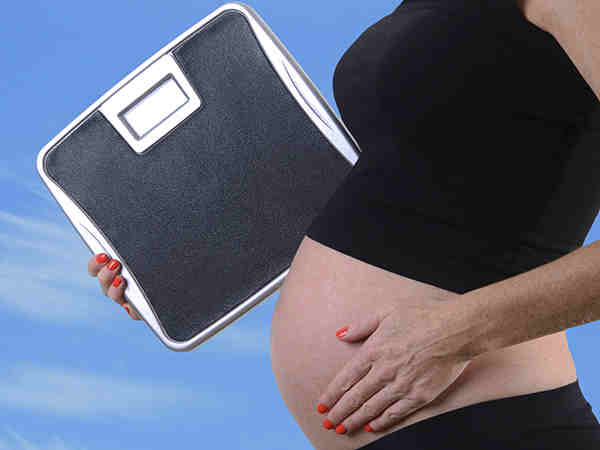
Healthy Weight during Pregnancy
Sharon Denny, MS, RDN
Published February 25, 2016
While pregnancy is not the time to lose weight, women should not use their expanding bellies as an excuse to eat more than is necessary. The amount of food a woman needs during pregnancy depends on a number of things including her body mass index (BMI) before pregnancy, the rate at which she gains weight, age and appetite. Although, all pregnant women should eat a variety of nutrient-rich foods each day. It may also be necessary to take a vitamin and mineral supplement if recommended by a physician.
Many women start off pregnancy overweight or obese; many gain more weight than is healthy during their pregnancy. Research shows the risk of problems during pregnancy and delivery is lowest when weight gain is kept within a healthy range. Obesity during pregnancy is risky for both mother and child, with some risks including gestational diabetes, gestational hypertension (high blood pressure), Cesarean delivery, birth defects and even fetal death. If a women is obese during pregnancy, it also raises the chance her child will be obese later in life.
Weight Gain Guidelines
The latest weight gain guidelines by the Institute of Medicine are based on a women's BMI before pregnancy. The amount of weight gained depends on what category the pre-pregnancy BMI lands in:
- Underweight: BMI below 18.5
- Normal weight: 18.5 to 24.9
- Overweight: 25.0 to 29.9
- Obese: 30.0 and above
The weight ranges below are for a full-term pregnancy:
- Underweight: 28 to 40 pounds
- Normal: 25 to 35 pounds
- Overweight: 15 to 25 pounds
- Obese: 11 to 20 pounds
For twins, the recommendations naturally go up:
- Normal: 37 to 54 pounds
- Overweight: 31 to 50 pounds
- Obese: 25 to 42 pounds
There are no set guidelines for underweight BMI weight gain with twins.
Calorie Intake
In general, pregnant women need between 2,200 calories and 2,900 calories a day. A gradual increase of calories as the baby grows is the best bet. Here is an overview of how calorie needs change during each trimester:
- The first trimester does not require any extra calories.
- During the second trimester an additional 340 calories a day are recommended.
- For the third trimester, the recommendation is 450 calories more a day than when not pregnant.
Avoid extra calories by cutting down on foods high in fat and added sugars. Replace regular soda, sweets and fried foods with healthy options including low-fat milk and yogurt, whole fruit and whole grains.
Physical Activity
Physical activity can help manage weight gain. The activity guidelines for pregnant women are 30 minutes of moderate exercise on most, if not all, days of the week. Make sure to talk with a doctor before starting or continuing any exercise routine.